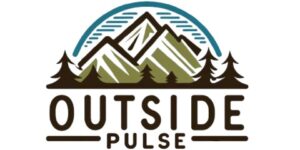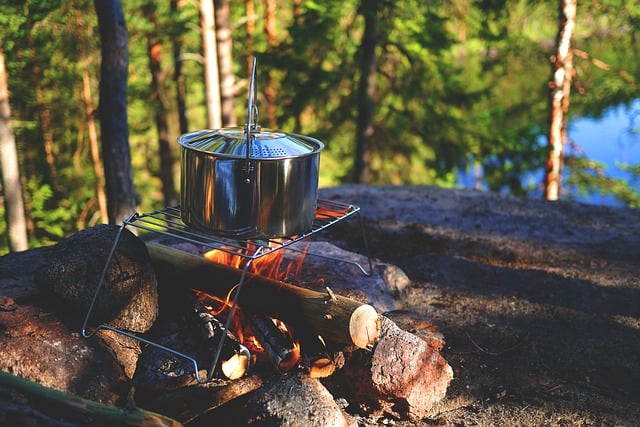How Safe is Camping?
How safe is camping? Camping is as safe as you make it. Even though camping can be fun and relaxing there are potential dangers and safety concerns that you should be aware of. In fact, no campsite is complete without some basic emergency and preparedness items as well as a general safety plan for camp safety.
Some basic emergency and preparedness items that every campsite should have include:
- First Aid Kit
- Several Different Lighting Options (flashlights, lanterns, etc…..)
- Bug Spray
- Sun Screen
- Waterproof Matches or Lighter
- Basic Repair Kit or Tools
Camp safety and staying safe while camping does not need to be a complicated endeavor. In fact, just having a general safety plan as well as some general camping safety knowledge will go along way in keeping you and your family safe while camping.
Campfire Safety
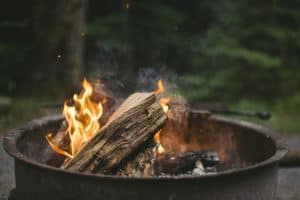 Campfire safety is at the top of the list when it comes to staying safe while camping. In fact, the campfire is one of the leading causes of campsite injuries or accidents while camping. However, keeping a few simple campfire safety rules in mind should help you avoid any accidents or mishaps around the campfire.
Campfire safety is at the top of the list when it comes to staying safe while camping. In fact, the campfire is one of the leading causes of campsite injuries or accidents while camping. However, keeping a few simple campfire safety rules in mind should help you avoid any accidents or mishaps around the campfire.
The first rule of campfire safety is to respect and be mindful of the campfire at all times. It’s also important to always keep a safe distance from the campfire and never use any flammable liquids or accelerants when starting or maintaining a campfire.
If there are children around the campsite then campfire and fire safety take on extra importance to make sure that they stay safe and injury-free while at the campsite. If camping with young children it’s important that they know the dangers of the campfire and rules to follow to stay safe while around it.
Dehydration / Water Filtration
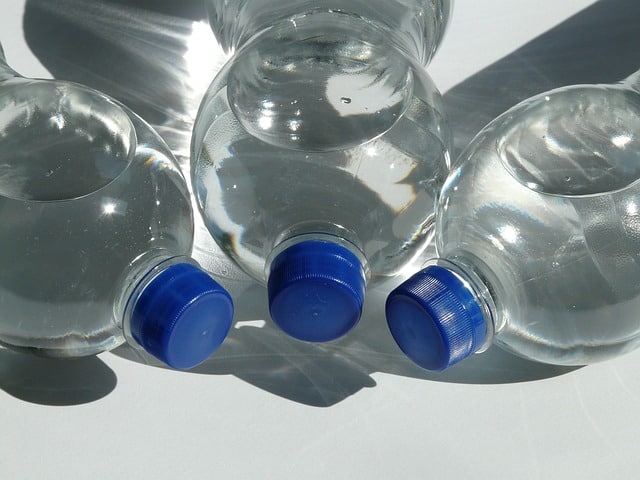 It’s important to drink plenty of water while camping to stay hydrated. If you don’t camp very often it is easy to underestimate the amount of water you should be drinking while camping.
It’s important to drink plenty of water while camping to stay hydrated. If you don’t camp very often it is easy to underestimate the amount of water you should be drinking while camping.
While doctors generally recommend we consume 8-eight ounces glasses of water a day or 2 liters this often times is not enough while camping. If you find yourself sweating more because of a particularly hot day or participating in strenuous activity while camping its best to add 2 additional eight-ounce glasses of water per day to compensate for the extra loss of water while camping.
Remember thirst is typically the first warning sign of dehydration and indicates that your body has lost 1% of its water. If you allow your body to lose 2% you are officially dehydrated which can lead to kidney stones, constipation, heat exhaustion, or heat stroke.
While you’re drinking your daily water intake while camping make sure that you are drinking clean noncontaminated water. There are several ways to accomplish this, the first is to bring your water with you to the campsite in water bottles, or gallon jugs, however, this might prove to be impractical if you are hiking into your campsite or camping remotely. The other option is to use a water source near your campsite and filter the water onsite before consumption. There are many products on the market that can filter contaminants from the water and provide pure clean potable water like the LifeStraw Personal Water Filter that you can check out here on Amazon.
Bugs and Snakes
The first line of defense for mosquitos and other flying insects while camping is a good bug spray so make sure to have plenty while camping. Also wearing light-colored long sleeve clothing will help to keep these flying pests at bay.
While camping make sure to avoid any potentially active beehives or hornet and wasps nest and make sure pets and children keep their distance as well. It also a good idea not to wear fragrant perfumes or lotions while camping as this can act as a homing beacon to all sorts of flying bugs and insects.
Tics can also be a major problem while outdoors but can be especially bad while in the woods or camping. To minimize the risk of tics keep your skin covered whenever possible and make sure to check for ticks on a daily basis.
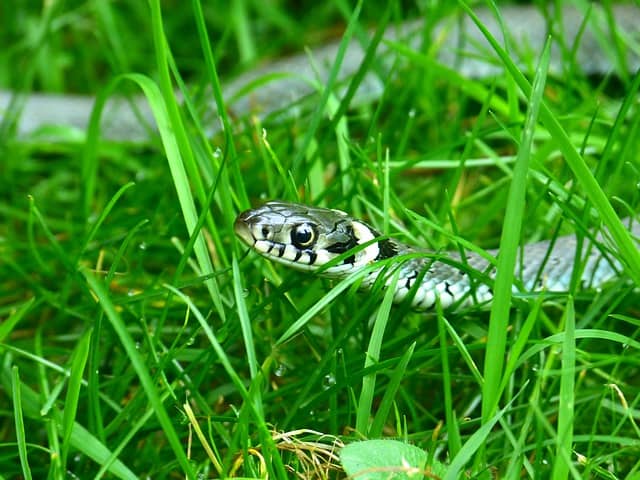 Snakes typically just want to be left alone however if you get to close or they feel threated or trapped they will strike. So while camping or hiking get in the habit of not stepping right in front of or behind logs and large rocks, and avoid holes in the ground and leaf piles. The best thing to remember if you see a snake is to give it plenty of space and don’t take your eyes off it while you pass it by.
Snakes typically just want to be left alone however if you get to close or they feel threated or trapped they will strike. So while camping or hiking get in the habit of not stepping right in front of or behind logs and large rocks, and avoid holes in the ground and leaf piles. The best thing to remember if you see a snake is to give it plenty of space and don’t take your eyes off it while you pass it by.
Don’t Get Lost
Almost 100 campers and hikers go missing every year but there are a few simple things that you can do to keep your name off this list.
The first rule is to always have a camp buddy and no one goes out alone. Second, while camping and hiking keep an eye out for landmarks and makers so that you always know your way back. Its also not a bad idea to keep an emergency whistle with you in case you get separated so that you are easier to find and locate
